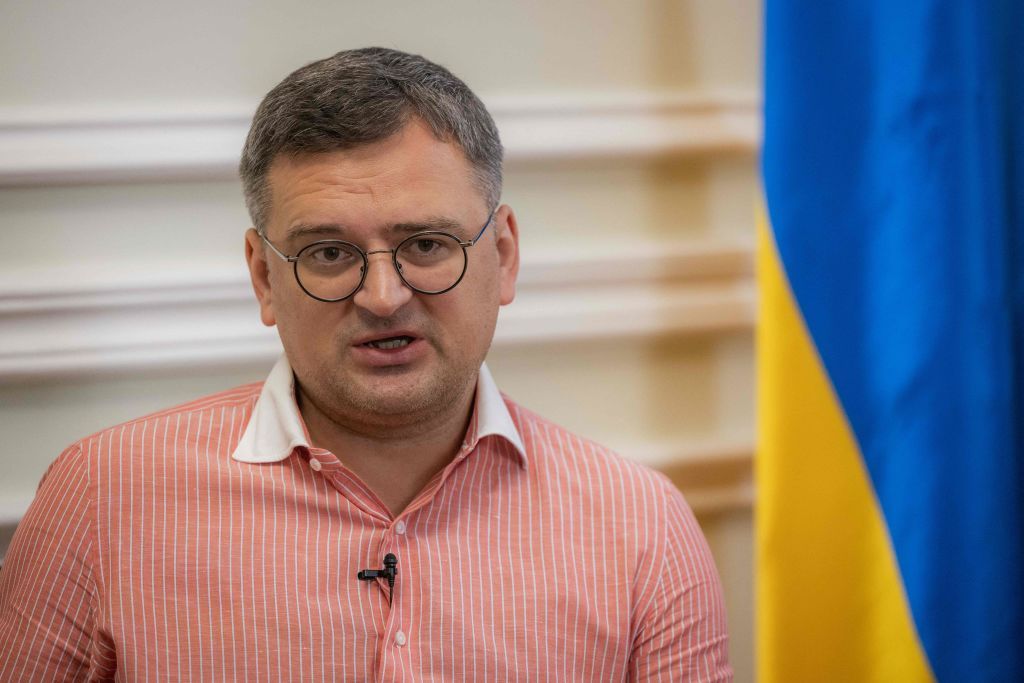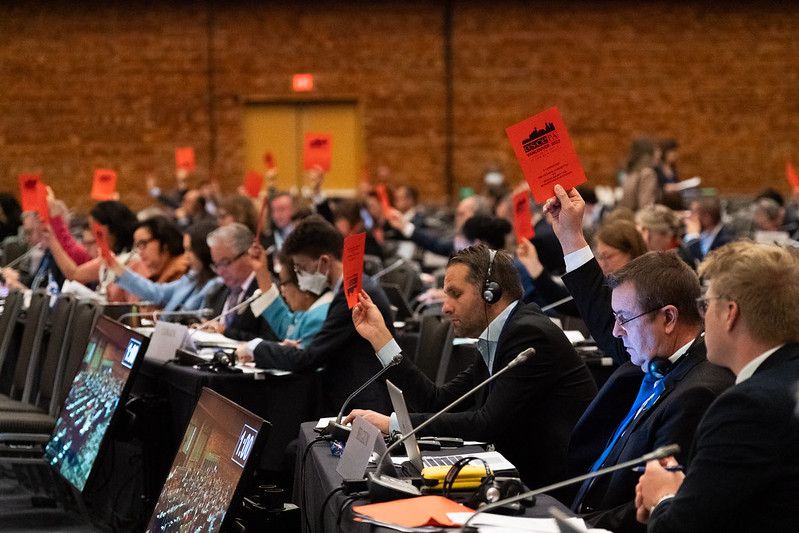OSCE Skopje summit starts amid disputes over Lavrov's presence.
The two-day ministerial summit of the Organization for Security and Co-operation in Europe (OSCE) in North Macedonia's Skopje began on Nov.
30 amid controversies regarding the presence of the Russian delegation. North Macedonia, the current presiding country of the organization, is hosting 76 delegations from some of the 57 members, as well as observing countries. The invitation of Russia's Foreign Minister Sergei Lavrov sparked a rift among the OSCE members, leading to the boycott of the summit by foreign ministers of Ukraine, Poland, Lithuania, Latvia, and Estonia.
"The Russian Federation is constantly sabotaging the OSCE, abuses the rule of consensus," Ukraine's Foreign Ministry spokesperson Oleh Nikolenko said on Nov.
28, adding that Moscow is "resorting to blackmail and open threats" in its OSCE dealings. Nikolenko also pointed out that Russia continues to illegally hold three Ukrainian OSCE officials since the start of the full-scale invasion. A dispute recently erupted within the organization after Russia and Belarus blocked Estonia's candidacy for the 2024 chairmanship, after which Malta received the appointment.
U.S. Secretary of State Antony Bliknen arrived in Skopje on Nov.
29 but left for Israel before Lavrov's arrival.
Kuleba to boycott OSCE meeting over Russian delegation's presence The Ukrainian delegation will not attend the upcoming Organization for Security and Co-operation in Europe (OSCE) meeting of foreign ministers due to the presence of Russian representatives, Ukraine's Foreign Ministry spokesperson Oleh Nikolenko said on Nov.
28.

Some OSCE member state representatives were more open to Lavrov's invitation. Austrian Foreign Minister Alexander Schallenberg welcomed the decision by the North Macedonian OSCE chairmanship: "We as the West must not be afraid to sit down with the Russians. I believe the tendency to delve into our own echo chambers in foreign policy is life-threatening."
The EU's top diplomat, Josep Borrell, commented that "it will be a good occasion for him (Lavrov) to listen directly from the participants at this meeting why Russia is being condemned and isolated." The chief of Russia's diplomacy arrived in Skopje late on Nov.
29. At the sidelines of the summit, Lavrov held meetings with several foreign representatives, including Hungarian Foreign Minister Peter Szijjarto, Armenian Foreign Minister Ararat Mirzoyan, and Austria's Schallenberg.
Lavrov's flight encountered complications as Bulgaria reportedly withdrew its permission for the Russian delegation to fly over its airspace. The Russian state news agency TASS reported that Sofia barred Lavrov's plane due to the presence of Russia's Foreign Ministry spokesperson Maria Zakharova, who is under EU sanctions. The plane had to instead take a 4,000-kilometer detour over Greece, TASS said.
The meeting of OSCE's foreign ministers, scheduled to finish on Dec.
1, should confirm Malta's appointment as the organization's chair for 2024. The OSCE was formed in the 1970s as the Conference on Security and Co-operation in Europe, which provided a platform for dialogue between the Eastern Bloc and Western Bloc during the Cold War. Ukraine has called for Russia's expulsion from the organization, warning that the OSCE faces "slow death" otherwise.
The OSCE's parliamentary assembly has recognized Moscow as a sponsor of terrorism.
OSCE Parliamentary Assembly recognizes Russia as state sponsor of terrorism
The OSCE Parliamentary Assembly recognized Russia as a state sponsor of terrorism and the private mercenary Wagner Group as a terrorist organization, according to Yevheniia Kravchuk, a member of the Ukrainian delegation to the assembly.
